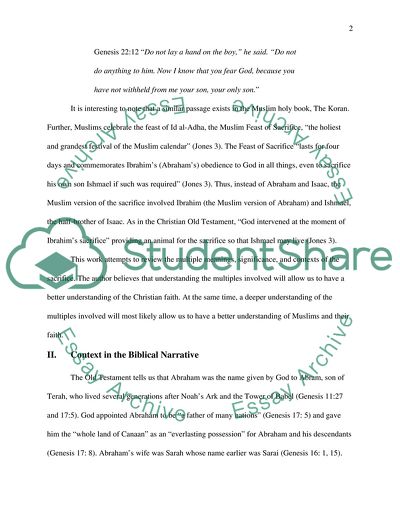Cite this document
(The Sacrifice of Isaac - Meanings, Significance, and Contexts Essay, n.d.)
The Sacrifice of Isaac - Meanings, Significance, and Contexts Essay. Retrieved from https://studentshare.org/religion-and-theology/1745115-old-testiment-paper
The Sacrifice of Isaac - Meanings, Significance, and Contexts Essay. Retrieved from https://studentshare.org/religion-and-theology/1745115-old-testiment-paper
(The Sacrifice of Isaac - Meanings, Significance, and Contexts Essay)
The Sacrifice of Isaac - Meanings, Significance, and Contexts Essay. https://studentshare.org/religion-and-theology/1745115-old-testiment-paper.
The Sacrifice of Isaac - Meanings, Significance, and Contexts Essay. https://studentshare.org/religion-and-theology/1745115-old-testiment-paper.
“The Sacrifice of Isaac - Meanings, Significance, and Contexts Essay”, n.d. https://studentshare.org/religion-and-theology/1745115-old-testiment-paper.


